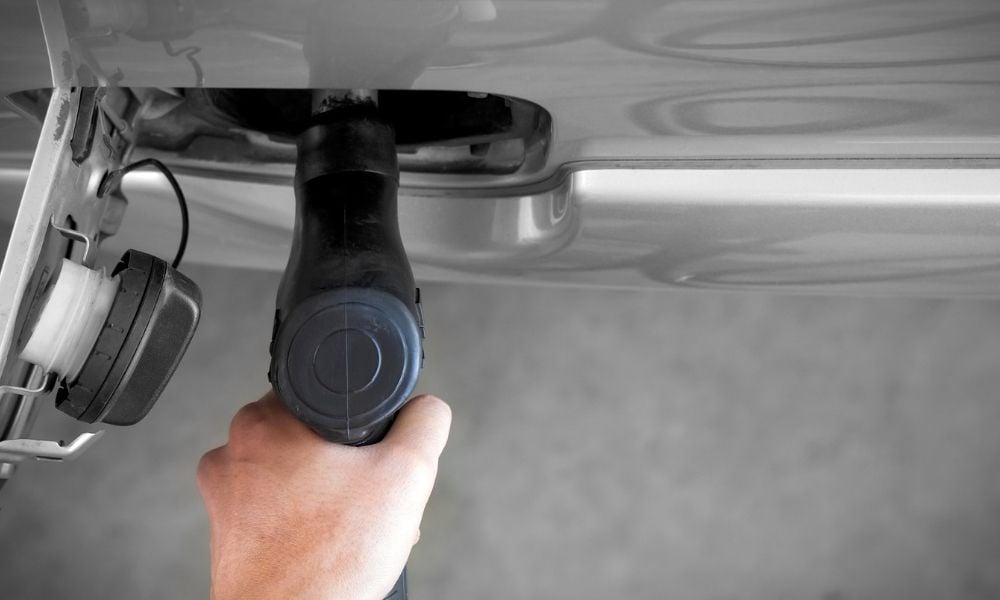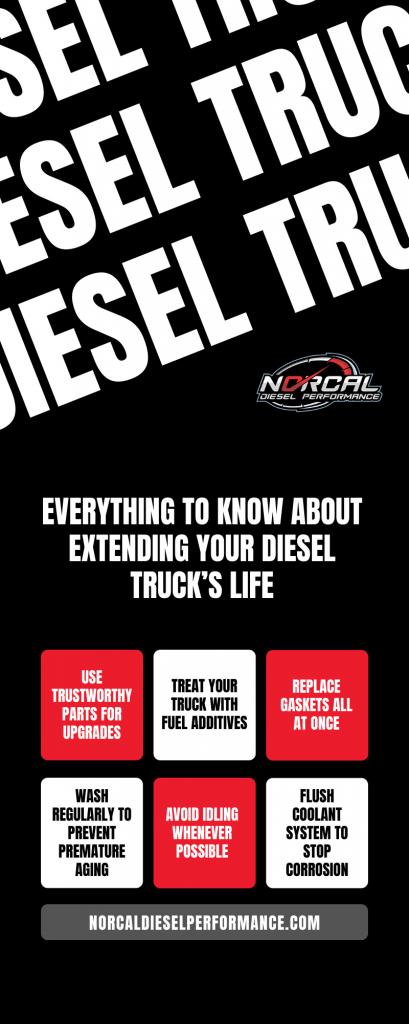


People who have never driven a diesel truck before can sometimes get confused as to why someone would go so far to keep it running for years upon years. That confusion quickly disappears once they actually get behind the wheel of a diesel powerhouse. For those of us who know what these machines give back with just a little bit of effort, it’s worth the time it takes to make sure that we have them for as long as possible.
How do we do that, exactly? Whether you’re brand new to the world of owning a diesel truck or if they’re the only vehicles you put your trust in, you probably want to do whatever you can to increase that truck’s longevity. To keep your truck running as good as it did on the day you drove it off the lot, we’ve compiled some tips concerning everything to know about extending your diesel truck’s life. It doesn’t take much effort at all, but the returns you get in performance and increased lifespan more than make up for any elbow grease you need to put into your truck.
Many diesel truck owners enjoy modifying and upgrading their vehicles to achieve the best possible performance. We highly recommend doing this, as your diesel truck won’t reach its full potential if you try to rely only on the parts it was originally built with. However, one important thing to remember is that there are plenty of sources that will claim their parts are great without having any evidence to back it up. Using parts that don’t come from a reputable dealer could put your entire truck at risk, so make sure you know who you’re getting your parts from, and how they should help improve your truck’s performance.
Using dirty fuel is one of the fastest ways to damage your diesel truck’s engine and cause it to need more maintenance at a faster pace. Around where you live, you probably already know where you can get fuel that you trust. On the other hand, if you use your truck for work or travel long distances with it regularly, you’ll be at the mercy of whatever fuel you can find along the way. Fuel additives can block any fuel impurities from damaging your engine. Pick yourself up some diesel treatment if you know that you’ll need to fill up in unknown places so that subpar fuel doesn’t ruin your truck.
Your diesel engine has plenty of gaskets running through it, but they all undergo different environmental conditions as you drive, such as wildly fluctuating temperatures. This means that gaskets can break or leak, causing a noticeable drop in performance from your engine. A leaky gasket is not something you want to play around with, as it could lead to your engine overheating. A good rule of thumb is to replace all your engine gaskets at once if one of them suddenly breaks or has a leak. All of your engine gaskets were installed at the same time, so if one of them malfunctions, it’s not unlikely that the rest will follow suit shortly.
If you want to know everything about extending your diesel truck’s life, you need to keep the exterior in mind just as much as the interior. While a busted-up exterior may not ruin the truck’s actual ability to drive, it certainly makes it less attractive and fun to drive over time. If your truck sees heavy use in difficult environmental conditions such as work sites, deep snow, or salted roads, you don’t want to let those things just stay on your truck’s exterior. This can start to corrode the finish of your truck over time. Get your truck washed regularly, and more often if it endures harsh conditions on a regular basis, so you can keep it looking its best for its whole life.
Depending on your truck’s make and model, you’ll need to replace components such as your air filter and fuel filter at regular mile intervals. For example, the fuel filter needs maintenance done on it somewhere between every 10,000 to 15,000 miles. You might have multiple filters if your truck is a newer model, so make sure to check them all during this time. Keeping your air intake and fuel clean of outside contaminants helps your engine run smoother. A smooth-running engine will last you much longer than one that struggles with contaminated air and fuel.
Coolant systems don’t need as frequent maintenance as your filters, but it’s crucial to flush your coolant system every 50,000 miles or so. Over time, your coolant can become dirty and even turn acidic. This acidic coolant can sit in your engine, slowly corroding away at its parts until you have a serious problem on your hands. A full coolant flush is the only solution to make sure that none of that acidic coolant remains or mixes in with new, fresher coolant.
Idling is not good for any vehicle as a baseline, but you definitely want to avoid idling your diesel truck whenever possible. Idling allows soot to build up inside of your engine, and it takes a shorter amount of time than you would probably expect for this to occur. This soot can stick to the engine and cause ugly exhaust issues when you try to run it again. You won’t always be able to avoid idling your truck, but if you have the option, turn it all the way off so you don’t have it running for no reason and accumulating unnecessary wear and tear.
Keeping your diesel truck going for a long time and giving it the extra boost that it needs to run at peak efficiency is all about getting the right parts for it. For example, a Dodge Ram cold air intake system can take your performance to the next level with one simple installation project. When you buy from Norcal Diesel Performance, you can feel comfortable knowing that you’re doing the best thing possible to keep your truck performing its best for years to come.

You must login to post comments.